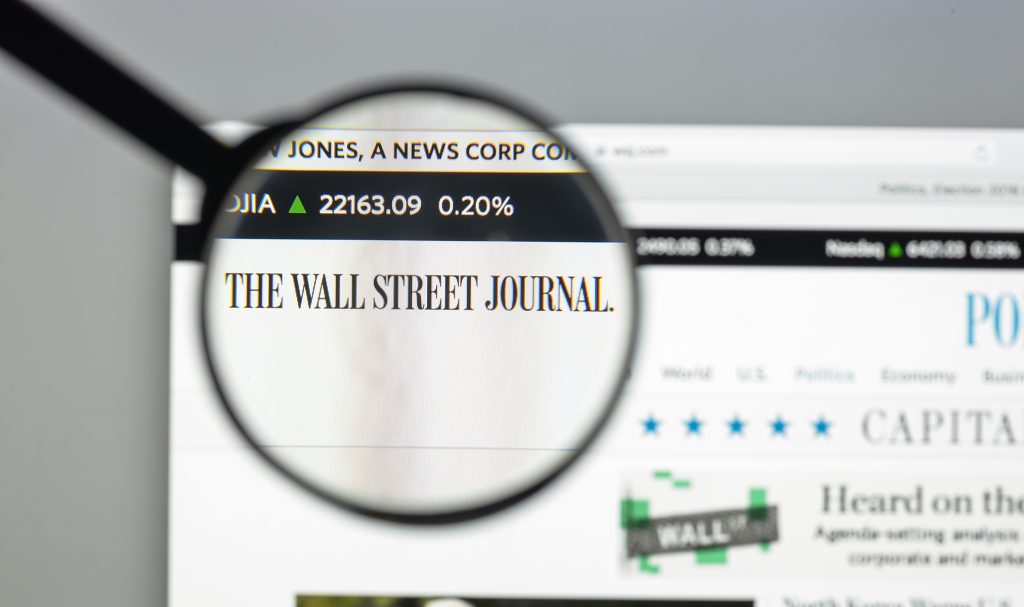It makes no sense whatsoever that “recession fears” are the cause of the recent stock-market carnage. To believe this narrative is to believe that investors rewarded for knowing, or speculating on unknowns, are in reality reliant on backwards looking government measures of economic health.
Never forget that the unemployment number arrived at by the Bureau of Labor Statistics is routinely calculated in real time by various official and non-official ways by ADP, Paychex, and all manner of other private businesses much closer to the actual economic action. To believe as some seemingly do, that investor decision-making is informed by government statistics, tramples on reason.
Other reports indicated that a growing lack of consumption globally has been the cause of ugly realizations. Except that if such a facile explanation of market health had any kind of validity, the market pullback would have revealed itself realistically months, if not years ago. That’s because consumption mirrors production.
Behind every act of buying is production that powers the buying that follows, and no amount of saving in the present could restrain the buying that economists assert (against all reason) is the source of economic health. Which means that even if consumers are tightening their belts as is suggested, this wouldn’t shrink consumption. Only a lack of production can do that.
As for the suggestion that declining equity markets reflect worry the Fed won’t cut soon enough, or didn’t cut soon enough (Jason Furman), please. This is just mindless. And we see over and over again, in bull market after bull market, why it’s mindless. Invariably with each stock-market boom, there are 5-10 companies that act as catalysts of the boom, and they drive it because before the bull market they were either unknown, lightly regarded, widely disdained, or non-existent. If you doubt this, consider the perception of Tesla, Nvidia, Google, Meta, Apple, Amazon and Microsoft in 2000 and 2010, not in the present. What this tells readers is that markets gain their strength from – yes – essential weakness that replaces the past (look up the world’s most valuable companies in the 2000, and 2010) with the future, not from Fed fiddling with rates.
It’s a long way of saying that what’s bruited as the market problem today is analyzed way too much to move markets so substantially. Surprise moves markets, and unemployment or consumption or Fed fiddling aren’t surprising.
Which requires a pivot. About this pivot, it’s almost as obnoxious as pundit attempts to break down in 750-word op-eds or 20-second sound bites the infinite decisions taking place every global millisecond every day on the way to market prices. At the same time, it at least recognizes that the known is priced, at which point the answer to the present can be found in the previously unknown.
It can then at least be asked if, regardless of reader view of what happened or what’s happening in Israel and around it, if the complexion of what’s taking place has unexpectedly changed. In other words, has the expectation of more fighting between Israel and Iran, and the global implications of same, driven a more subdued look at the future?
From there, it’s increasingly likely that Kamala Harris will represent the Democrats in November. Forget ideology for a second, and forget which Party is allegedly best for stocks, and instead think about how investors have to price not just the exit of a known in Joe Biden, but also the unknown of a new nominee who was widely explained before Biden’s exit as a reason he couldn’t exit.
Lastly, assuming an economic slowdown that government stats would by definition discover long after the fact, don’t slowdowns instigate political action from both Parties that invariably worsen the alleged problem? As Howard Marks has long said, the seeds of recovery are planted during times of trouble, yet “recession” is nothing more than evidence that politicians are about to suffocate what’s healthy with government intervention. Central planning that never works during the good times can hardly gain nobility during the bad.
Again, all obnoxious stabs in the dark. At the same time, an acknowledgment of what’s true, that no one knows anything. This includes market pundits.
Republished from RealClear Markets





